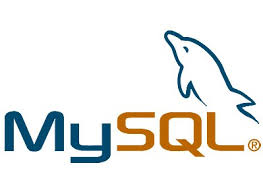Category Archives: Cpanel Server
PHP Script to alert if mail queue size is above X on Cpanel Server
I created a php script to alert if mail queue size if above 100. <?php $cmd = ‘/usr/sbin/exim -bpc’; $num_mails = exec($cmd); if ($num_mails > 100) { $hostname = exec(‘/bin/hostname’); $subject = ‘Mail queue alert on ‘ . $hostname; $mail_text
Change MySQL root Password in Cpanel Server
Log into WHM and scroll down and find SQL Services or search mysql root password. In that section you will find a link to reset your root password for MySQL. WHM >> SQL Services >> Change Mysql user password or
How to Change the SSH port on cPanel Servers
To change the SSH port login as root, and edit /etc/ssh/sshd_config Find the line that says Port 22 and change 22 to any number between 1024->65535 (above 30000 is best) and save the file. Once done, run: /etc/init.d/sshd restart Now
How to Install Mod_Gzip with Apache
mod_gzip is an Internet Content Acceleration module for the popular Apache Web Server. It compresses the contents delivered to the client. There is no need to install any additional software on the client! If you are having difficulties with getting
How to Install, Configure and Securing a new cPanel Server
First Install cPanel on the new server after this give screen command If it works then OK ,but if did’nt work use now give screen command after that give ‘ll’ or ls and you will see the file as ‘latest’
MySQL Database size shows 0 MB in cPanel
When checked in MySQL database I see the size as 0 mb. So made some changes and it worked. 1) SSH to your server as root and edit the cpanel.config file root@server[~]# nano /var/cpanel/cpanel.config Search for disk_usage_include_sqldbs=0 and change to
eximrm – delete mails in exim queue
Create file /usr/local/bin/eximrm with following content chmod 755 the file Now running the command “eximrm” will delete mails in Exim mail queue.
Converting CentOS to CloudLinux
To Install CloudLinux, run If you have key based license, run If you have IP based license After installation finished, reboot the server, so server will boot into CloudLinux kernel After reboot, you will see kernel with “lve” Back to
Drive Space Critical on hostname
On Cpanel Server, got following error Drive Critical: /dev/sda3 (/usr) is 91% full This is because /usr/ partition is full, mostly disk space used by /usr/local/apache/domlogs folder. To fix this, you can move domlogs folder in another partition that have
Rebuild php.ini in Cpanel Server
First rename php.ini, so you can copy it back or compare if anything go wrong mv /usr/local/lib/php.ini /usr/local/lib/php.ini.bak.$(date +%m%d%Y%H) Now run /scripts/phpini This will generate new php.ini file.


